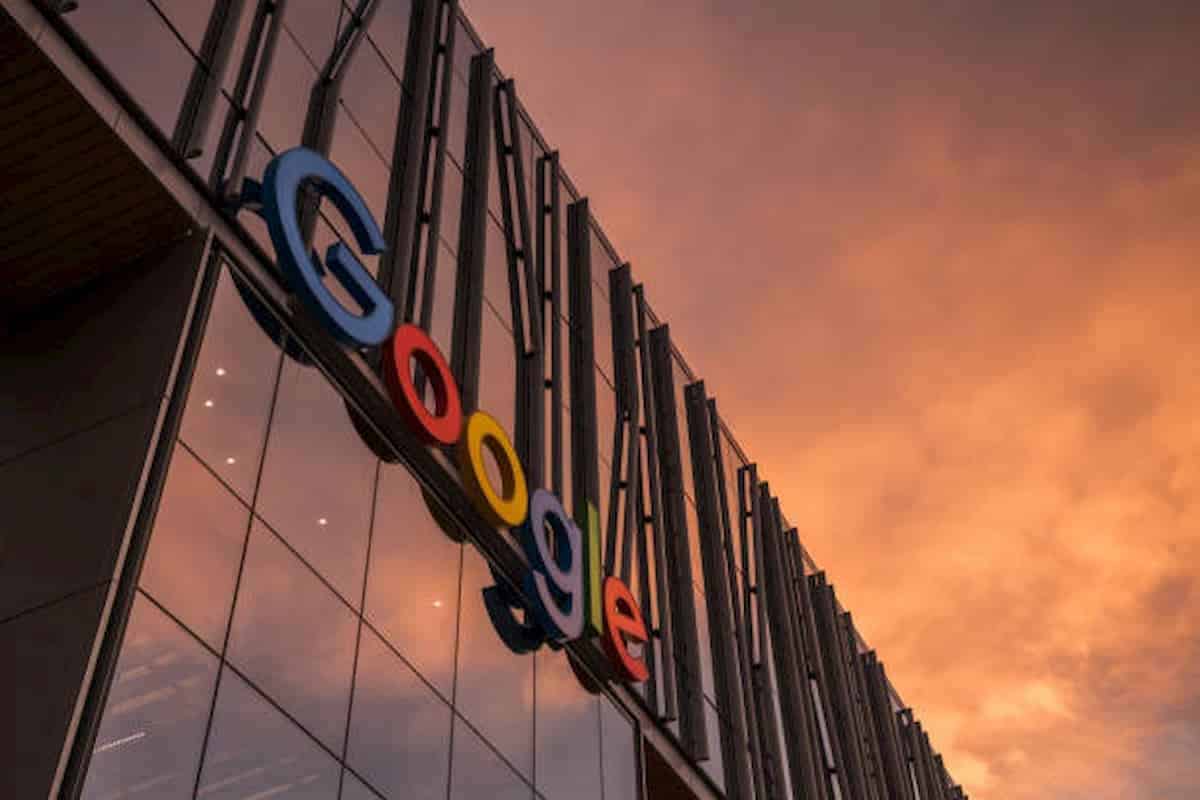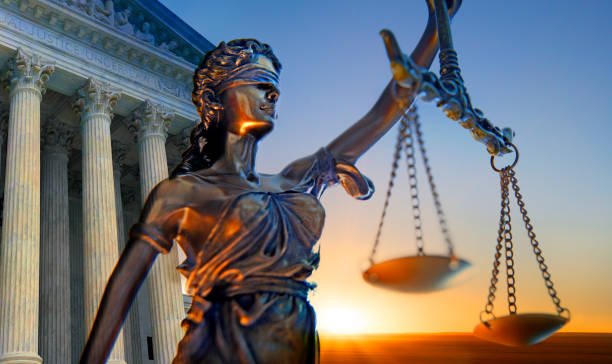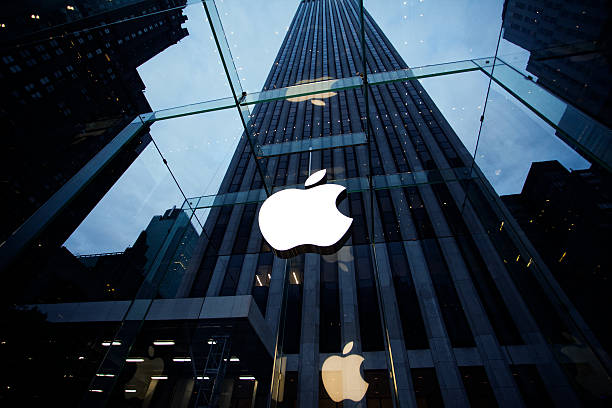Google owners and other billionaire tech investors cannot fight everyone everywhere forever. On July 7, former US President Trump filed a class-action lawsuit against Facebook, Twitter, and Google. His lawsuit pursues the companies’ partisan censorship of viewpoints that mainly conflict with those of their employees and CEOs. BTW if you want to find out what Google knows about you, look at this video.
Trump took to the Wall Street Journal on the next day where he appeared to sum up his most compelling argument for suing the companies:
“If they can do it to me, they can do it to you.”
Interestingly, his statement echoes what Bernie Sanders told the New York Times in March:
“[Y]esterday it was Donald Trump who was banned, and tomorrow, it could be somebody else.”
When Sanders and Trump take the same position on Big Tech censorship, the issue deserves some serious attention. But in general, the media and the Democrats have dismissed the class action lawsuit terming it as a publicity stunt while adding that “private companies” are not bound by the First Amendment.
The Law Is Not Straightforward On Social Media Platforms
But things are not that straightforward as they may appear. UCLA law professor Eugene Volokh explains:
“Historically, American law has divided operators of communications systems into three categories — publishers, distributors, and conduits — and has set up different standards of liability for each.”
Today, social media platforms fall into the ‘conduit’ category. This category is analogous to common carriers including telephone or public accommodation places like city parks, neither of which may ban people according to their political views. Volokh continued to say:
“I think Congress could categorically treat platforms as common carriers, at least as to their hosting function. But Congress could also constitutionally give platforms two options: (1) Be common carriers like phone companies, immune from liability but also required to host all viewpoints, or (2) be distributors like bookstores, free to pick and choose what to host but subject to liability (at least on a notice-and-takedown basis).”
Volokh is not the only legal luminary who suggests that social media platforms are majorly analogous to the common carriers and are thus subject to regulation by state legislations or Congress.
Last April, Supreme Court Justice Clarence Thomas caused a lot of hysteria when he pointed out in his famous concurring opinion in Biden v. Knight that, Facebook, Twitter, and Google, just like communication and trains networks are privately owned but the law obligates them to serve everyone indiscriminately.
Justice Thomas then said that Congress has granted the social media networks some immunity from various lawsuits but it has also not imposed corresponding responsibilities, for example, nondiscrimination.
Section 230 Of The CDA Protects Public And Social Media Networks
These happenings bring us to the special dispensation that social media networks enjoy when Section 230 of the Communications Decency Act (CDA) is taken into consideration. Section 230 states:
“No provider or user of an interactive computer service shall be treated as the publisher or speaker of any information provided by another information content provider.”
Upon learning about the class action lawsuit, the Left invoked the obsolete 1996 law making it appear like it constitutes an immutable and sacrosanct decree that entirely precludes Trump and others like him from holding the Big Tech accountable for violations of the First Amendment. But Joel Thayer points out in Newsweek that what Congress can give, Congress can take away. He wrote:
“Congress can write a new public accommodation law to prevent internet platforms from discriminating against users who express a certain political viewpoint.… One avenue it can take is applying public accommodation laws that bar platforms from discriminating against users because of their political views. Such measures are not only in line with the animating spirit of Section 230, but they affirmatively advance it.”
The matter will be on the legislative agenda if Republicans take control of the House and Senate in 2022 since social media platforms have hidden behind Section 230 protections to censor users and content that seems to deviate from the leftist orthodoxy. This legislation has already been written.
Sens. Roger Wicker (R-Miss.), Marsha Blackburn (R-Tenn.), and Lindsey Graham (R-S.C.) joined other Senate Republicans in the last fall to introduce the Online Freedom and Viewpoint Diversity Act. This bill aims to update Section 230 to reflect and represent the online realities of 2021 and simultaneously impose more accountability on social media networks.
The DISCOURSE Act
In June 2021, Sen. Marco Rubio (R-Fla.) brought the DISCOURSE Act to the house. His bill is designed to modify Section 230 to ensure that when huge companies arbitrarily censor some content or political viewpoints they will no longer enjoy CDA protections.
Sen. Rubio said in a statement introducing the legislation:
“Big Tech has destroyed countless Americans’ reputations, openly interfered in our elections by banning news stories, and baselessly censored important topics like the origins of coronavirus.… No more free passes — it is time to hold Big Tech accountable.”
In the meantime, many states are also targeting social media platforms on the censorship issue. The New York Times reports:
“Republicans, who have full control of more than 20 state governments [23 enjoy trifectas to be precise], have been especially active in drawing up bills to rein in tech power, reversing their traditional hands-off approach. Some have proposed laws to regulate how the platforms moderate content for the first time, motivated by perceptions that tech companies censor conservative personalities.”
As expected, the new Florida law has received a lot of media coverage. This law made it illegal for Big Tech firms to deplatform political candidates. It got massive attention when a Clinton-appointed federal judge granted an injunction that stopped the statute from getting enforced.
This setback did not come as a setback and Gov. DeSantis’ office plans to appeal in the 11th Circuit Court of Appeals. That might be a hard task since Big Tech firms are expected to spend a lot of money on high-ranked lawyers aiming to maintain a monopoly in the marketplace of ideas. The question now comes:
Do the oligarchs want to fight everyone forever?
That is what they will have to do in the end. If the censorship practices continue creating worries on both sides of the political arena, Big Tech is making enemies everywhere. Even if Trump’s class-action lawsuit fails, others will be filed. If they pay enough to stall the current congressional initiatives, new laws will be introduced.
If they defeat the Florida law, other states will come up with their lawsuits. Eventually, Mark Zuckerberg, Jack Dorsey, and the other tech CEOs will grow tired, make a deal, and go back to their work.
Many States Sue Google Over App Store Fees
On July 7, 36 states and the District of Columbia sued Google over allegations that its mobile app store abuses its monopolistic powers and compels aggressive terms on software developers. This move has intensified legal challenges facing the internet search giant.
This suit is now the fourth federal or states antitrust legal action against Google since October 2020. However, this lawsuit is the first to review the firm’s lucrative app store. New York, Utah, Tennessee, and North Carolina led the suit filed in a federal court in the Northern District of California.
Mobile app developers are disgruntled with the way Google forces them to use its system for some payments within their products. The Google system charges a 30% commission on top of most transactions forcing developers to charge higher prices for their services.
This lawsuit reiterated these concerns, mentioning that Google seized control of mobile apps distribution in its Android smartphone operating system. The complaint stated:
“Because of Google’s anticompetitive conduct, Google Play Store’s market share — which is well over 90 percent — faces no credible threats, and market forces cannot exert pressure on its supracompetitive commissions.”
In an official blog post, Google has termed the lawsuit as ‘meritless’. The company said that it was strange that the attorneys general had decided to attack its Play Store instead of its rival Apple. The senior director of public policy at Google, William White, wrote:
“Android and Google Play provide openness and choice that other platforms simply don’t. This lawsuit isn’t about helping the little guy or protecting consumers. It’s about boosting a handful of major app developers who want the benefits of Google Play without paying for it.”
This lawsuit signals that federal and state regulators are still investigating Google’s business empires looking for monopolistic practices. For many years, the regulators decided not to act against Google even as its products and businesses became dominant and rivals complained bout how it unfairly leveraged in the market using its powers.
Antitrust Complaints Focus On Search And Advertising
For now, the many antitrust complaints against Google have majorly focused on search and advertising. In 2020, the Department of Justice sued the firm on allegations that it illegally protected its monopoly nature over its online search and advertising. A later suit also accused the tech firm of abusing its power over advertising technology, the state attorneys general separately sued it for squeezing the smaller search services.
On its part, Google said that it lets other firms like Fortnite creator Epic Games and Samsung operate app stores for its Android software. But states insist that while Google Play Store is the source of over 90% of all Android apps in the US, no other Android app store has over 5% share of the market.
These complaints are just a few among many other cases against the tech giants or investigations into most of their practices. A group of states and the Federal Trade Commission (FTC) filed antitrust lawsuits against Facebook in 2020. But, a judge dismissed the complaints in June 2021. Interestingly, FTC is also reportedly investigating Amazon and Justice Department has raised several questions about Apple’s business.
Apple Might Also Face Lawsuits Like Google
Apple operates the other major app store for smartphones. It is being investigated for the cut that it takes from the developers for subscriptions and app sales. In 2020, Epic Games filed an antitrust suit against Apple accusing it of abusing its powers to charge app-makers unfairly high commissions. It is now awaiting a decision on this matter in August.
Developers say that Google and Apple marketplaces are charging high fees for access. The two tech firms’ software control nearly all of the smartphones worldwide and developers have no choice but to adhere to the set policies and pay the high fees.
Google began cracking down on all the subscription-based app developers last year including Spotify and Netflix. These developers were accused of circumventing the firm’s payment system to avoid paying fees in the Play Store. At the time, the Alphabet company said that it was offering clarity on the types of transactions needed using the payment system.
The tech giant stated that it would compel firms to integrate their payments with Google’s billing network in September 2021. However, as antitrust scrutiny continues to increase on the Play Store, Google mentioned that it would reduce store fees for all developers on the first $1 million in revenue per year to 15-30%.
The July 7 lawsuit exerts pressure on how Apple runs its App Store. While Android lets people circumvent the Play Store and add apps to phones via other means, Apple’s mobile software does not. Hence, there is no other way of installing software on an iPhone without having to go through the App Store.
One competition policy advocate working at Public Citizen, Alex Harman, stated:
“The app store issues are so clearly in the strike zone for Apple.”
Public Citizen is a group that has pushed for aggressive antitrust legislation enforcement against the tech giants.
The attorney general of Utah, Sean Reyes, commented in an interview that he was interested in the issues that were raised by Apple’s practices. He stated:
“Nothing in this lawsuit or this investigation precludes us from investigating or filing against any other entity.”












